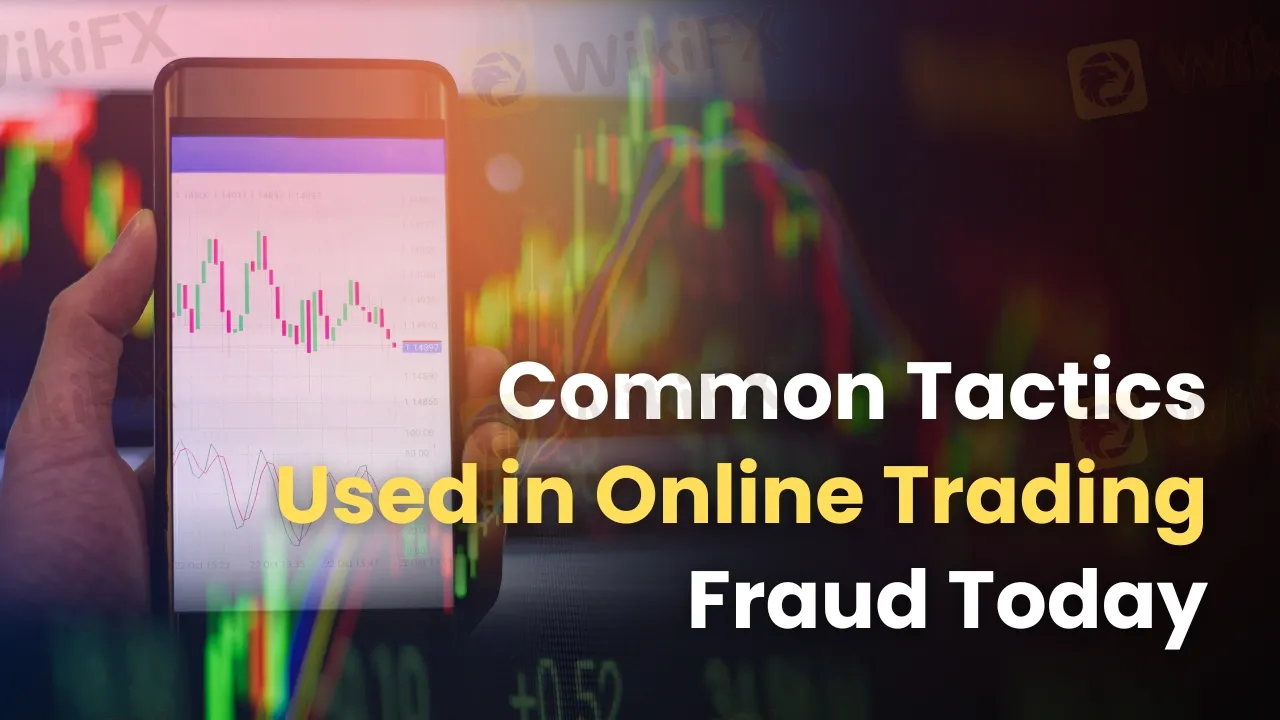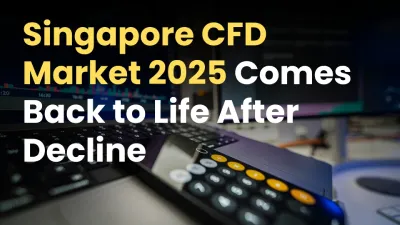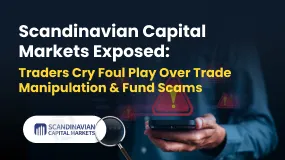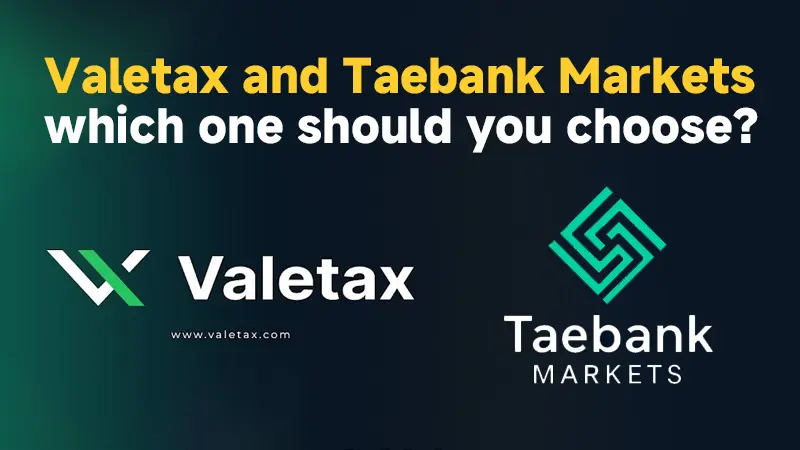简体中文
繁體中文
English
Pусский
日本語
ภาษาไทย
Tiếng Việt
Bahasa Indonesia
Español
हिन्दी
Filippiiniläinen
Français
Deutsch
Português
Türkçe
한국어
العربية
Common Tactics Used in Online Trading Fraud Today
Abstract:Know the top online trading scams of 2025, from fake apps to pump-and-dump tricks. Simple tips to spot and avoid them, keeping your money safe in this easy guide.

Online trading is getting more popular, but so are the tricks scammers use to fool people. In 2025, these scams will be smarter, using tech, social media, and people‘s hopes to trick both new and seasoned traders. This article lists the top scams still happening today, based on what’s going on now, to help you stay safe and aware.
1. Fake Trading Platforms and Apps
Scammers make fake websites or apps that look like real trading companies. They copy trusted names and logos to seem legit. People put money in, thinking they‘ll make profits fast, but the trades aren’t real, and they cant take their money out. Sometimes, fake profits show up to trick them into adding more cash before the scammers run off.
How to Avoid: Check if the platform is approved by a trusted group like the Financial Conduct Authority (FCA) or the U.S. Commodity Futures Trading Commission (CFTC). Look up what others say about it, and dont trust random ads or messages.
2. Automated Trading Bots and “Guaranteed” Returns
Some scammers sell robots or tools that promise big money with no work. They say these can turn a little cash into a lot overnight. But these tools don‘t work—or they’re just scams to steal your money. Fake profits might pop up to make you trust them and send more.
How to Avoid: Dont believe promises of sure money—trading always has risks. Use tools from known companies with good reviews, and ask a money expert for advice.
3. Pump-and-Dump Schemes in Cryptocurrency and Stocks
In these scams, bad guys push up the price of a coin or stock with fake hype on social media or news. When lots of people buy and the price jumps, they sell fast, the price crashes, and others lose everything. In 2025, they use smart tech to spread fake posts even more.
How to Avoid: Check out what you‘re buying carefully. Don’t jump in just because of big talk online or sudden price jumps.

4. Phishing and Impersonation Scams
Scammers send emails, texts, or messages pretending to be real trading companies. They trick people into giving passwords or personal info. Sometimes they act like famous traders to seem trustworthy and ask for money.
How to Avoid: Don‘t click links or share info from random messages. Check who’s contacting you through their real website or phone, and use extra security like two-factor authentication (2FA).
5. High-Pressure Sales Tactics and Unrealistic Promises
Scammers promise crazy profits—like 10% a week—with no risk. They rush you to invest fast, saying it‘s a special deal. They show off fancy cars or houses online to prove they’re rich and trick you.
How to Avoid: Real trading doesn‘t promise profits. Take your time, don’t rush, and talk to a licensed money advisor if youre unsure.
6. Ponzi and Pyramid Schemes Disguised as Trading Programs
Here, scammers say they‘ll trade for you and pay big returns. They use new people’s money to pay for old ones, but it falls apart when no one new joins. Some even pay you to bring in friends.
How to Avoid: Watch out if they focus more on getting people than trading. Make sure they‘re watched by a real authority and don’t pay shady folks.
7. Social Media and Influencer-Driven Scams
Places like Instagram, WhatsApp, and Telegram are full of scams in 2025. Fake accounts or paid influencers push bad brokers or coins. They pull you into chats with big success tales and sneaky links.
How to Avoid: Dont follow money tips from random online people. Check advice on trusted money sites, and skip pushy groups.
8. Advance-Fee Fraud in Trading
Scammers ask for money upfront for “special” trading deals, like secret funds or tips. After you pay, they disappear. This often hits people new to trading by offering to handle their money.
How to Avoid: Real companies dont charge for promises. Stick to ones that show all costs and are approved by a trusted group.
Why These Scams Persist in 2025
These tricks keep going because trading is easy to try, people want fast cash, and scammers use new tech like fake videos to look real. They target trust and confusion to win.
Final Tips for Staying Safe
- Learn trading basics to spot fake claims.
- Check if a company is licensed and read real reviews. The WikiFX App‘s main feature lets you verify brokers fast—search their name to see if they’re legit and avoid risky ones.
- Tell regulators like the FCA or SEC if you see a scam.
- Pay with cards or safe methods—not crypto—so you can get money back.
By keeping your eyes open and learning, you can trade safely in 2025. Knowing these scams is your best shield—share this to help others stay safe too.

Disclaimer:
The views in this article only represent the author's personal views, and do not constitute investment advice on this platform. This platform does not guarantee the accuracy, completeness and timeliness of the information in the article, and will not be liable for any loss caused by the use of or reliance on the information in the article.
Read more

Singapore CFD Market 2025 Comes Back to Life After Decline
Singapore's leverage trading market 2025 rebounds as CFD and forex traders embrace AI adoption in trading Singapore.

Scandinavian Capital Markets Exposed: Traders Cry Foul Play Over Trade Manipulation & Fund Scams
Does Scandinavian Capital Markets stipulate heavy margin requirements to keep you out of positions? Have you been deceived by their price manipulation tactic? Have you lost all your investments as the broker did not have risk management in place? Were you persuaded to bet on too risky and scam-ridden instruments by the broker officials? These are some burning issues traders face here. In this Scandinavian Capital Markets review guide, we have discussed these issues. Read on to explore them.

KEY TO MARKETS Review: Are Traders Facing Withdrawal Delays, Deposit Issues & Trade Manipulation?
Did your deposits in KEY TO MARKETS’ forex trading fail to reflect despite numerous follow-ups with the broker? Are you facing margin lock up and withdrawal issues due to stuck limit orders? Do you find losses due to wide spreads on the KEY TO MARKETS login? Similar issues have been expressed by many traders online. In this KEY TO MARKETS review article, we will take a close look at the complaints. Read on!

Valetax vs Taebank Markets — Which Broker Should You Choose?
This article is about the two brokers, Valetax and Taebank Markets.
WikiFX Broker
Latest News
GCash Rolls Out Virtual US Account to Cut Forex Fees for Filipinos
The 350 Per Cent Promise That Cost Her RM604,000
INZO Commission Fees and Spreads Breakdown: A 2025 Data-Driven Analysis for Traders
Garanti BBVA Securities Exposed: Traders Report Unfair Charges & Poor Customer Service
"Just 9 More Lots": Inside the Endless Withdrawal Loop at Grand Capital
Private payroll losses accelerated in the past four weeks, ADP reports
Core wholesale prices rose less than expected in September; retail sales gain
Consumer confidence hits lowest point since April as job worries grow
CFTC Polymarket Approval Signals U.S. Relaunch 2025
MH Markets Commission Fees and Spreads Analysis: A Data-Driven Breakdown for Traders
Currency Calculator



